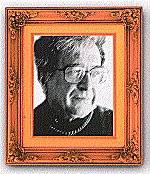Last widely heard in the UK at the South Bank's 1994 retrospective, the music of Luciano Berio has been overlooked in recent years, with little sign that the most recent dramatic works of this most forward-thinking of theatre composers will be staged here. Still, it was good to see the composer, his conducting limited recently by glaucoma, at the helm in a revealing cross-section of major works.Composing through layers of elaboration has long been central to Berio's creative thinking. The 13 (to date) Sequenzas for solo instruments, and related series of Chemins, concerto-like commentaries illustrate the consistency of his approach over four decades. Récit is actually Chemins VII, the saxophone core itself a transcription of a clarinet original. Subtle and understated orchestration, and a diverting concert-opener, with Claude Delangle insinuating in the solo part. No fault of his that bassoonist Pascal Gallois then stole the show in a breathtaking display of musical technique in Sequenza XII. Berio draws new levels of pathos from this easily stereotyped of instruments, in a series of strikingly-contrasted episodes - playing here for 16 minutes, substantially less than the marathon heard on Gallois's contribution to the complete Sequenza cycle (Deutsche Grammophon 457 038-2GH3, 3CDs) and with consequently greater impact.
Nearly a quarter-century after its premiere, Coro remains among Berio's most ambitious statements, both in its stylistic and linguistic comprehensiveness, and its radical rethinking of the layout of voices and orchestra; matching singers and players so as to maximize variety in the interplay of ensembles over the course of its 53 minutes. Coro draws prominently on the writing of Pablo Neruda, fusing the sentiments of his love poetry and political convictions with the aspirations to freedom of the folk texts, which provide a context for the music's complex yet celebratory mesh of vocal melisma and controlled instrumental anarchy. Unlike so many 'political' works of this era, the emotional force of Coro is always generated by purely musical expression. The whole was powerfully and persuasively delivered by the BBC forces, although the dry acoustic of the RFH is not best suited to the saturated textures of Berio draws from the musicians. It was good even so to hear this major work from the 1970s revived: Berio's contribution to post-war music is rarely less than engrossing, and deserves wider exposure here over the coming decade.
Richard Whitehouse

 Return to:
Return to: